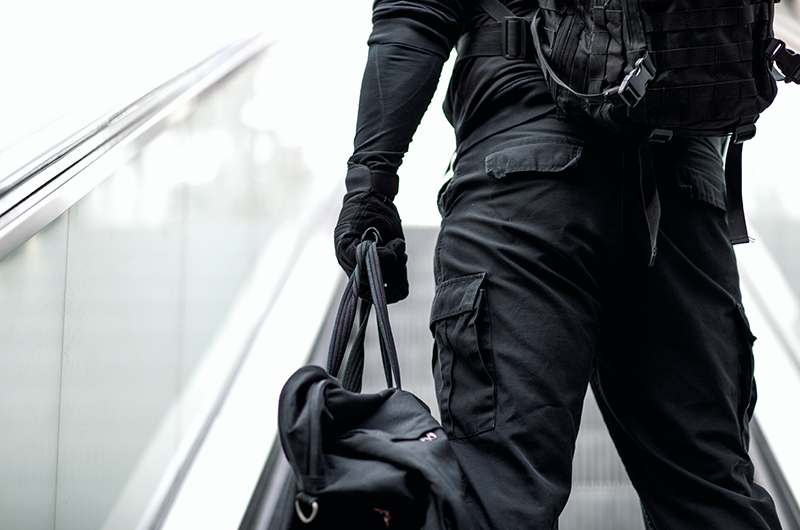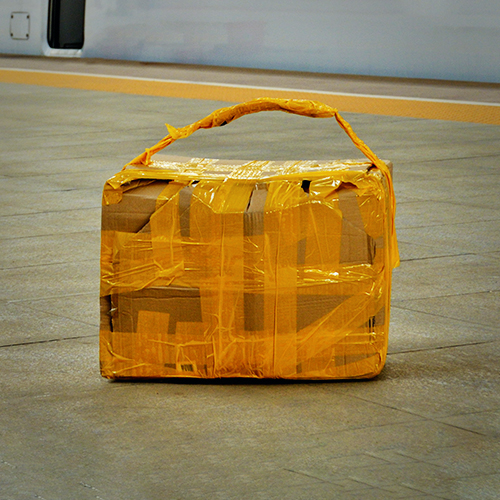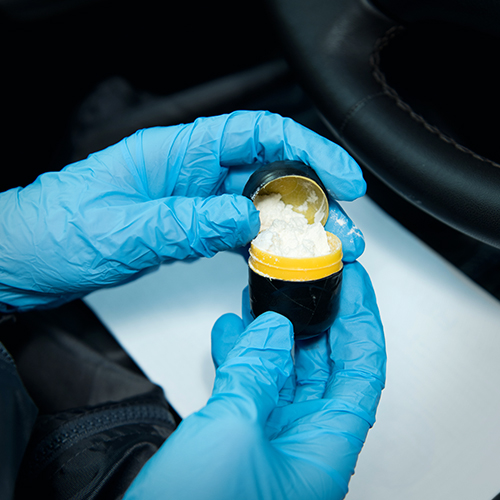
Be Prepared
Terrorism Attacks
Report Suspicious Activity
iWatch Salt Lake County Community Reporting System
You can report suspicious activities or behaviors that may indicate ongoing or future criminal or terrorist activity. Your report will be reviewed by an analyst to determine if similar reporting exists and to ensure the appropriate referrals are made. The report should take less than 5 minutes to complete and will remain confidential.
False reporting to a law enforcement agency is a violation of state law.

Surveillance
Demonstrating an unusual interest in facilities to determine how well the target is protected and what security measures are in place.

Information Gathering
Questioning individuals at a level beyond mere curiosity.

Testing Security
This may be an attempt at measuring reaction times to security breaches or assess strength and weaknesses.

Funding
The raising of money to finance illicit and potential terrorist operations.

Acquiring Supplies
The acquisition of unusual amounts of precursor materials.

Impersonation
Using false documentation, uniforms, badges, access passes or keys to gain access to protected facilities.

Rehearsal
Terrorists will often rehearse their plans several times over, to ensure successful deployment.

Deployment
Terrorists are arranging their assets, getting into position or are in the midst of conducting their operation.
Explosive devices can be carried by cars and people and are easily detonated from remote locations or by suicide bombers. There are steps you can take to prepare.
Before an Explosion

Protect yourself:
- Build an Emergency Supply Kit.
- Make a Family Emergency Plan.
- Learn what to do in case of bomb threats or receiving suspicious packages and letters.
- Make sure your employers have up-to-date information about any medical needs you may have and how to contact designated beneficiaries or emergency contacts.

Bomb Threats
If you receive a telephoned bomb threat:
- Get as much information from the caller as possible. Try to ask the following questions:
- When is the bomb going to explode?
- Where is it right now?
- What does it look like?
- What kind of bomb is it?
- What will cause it to explode?
- Did you place the bomb?
- Keep the caller on the line and record everything that is said.
- Notify the police and building management immediately.

Suspicious Packages and Letters
Characteristics of suspicious packages:
- Is unexpected or from someone you don’t know.
- Has no return address, one that doesn’t match the postmark or can’t be verified as legitimate.
- Is marked with phrases like “Personal,” “Confidential,” or “Do not X-ray.”
- Has inappropriate or unusual labeling such as threatening language.
- Has protruding wires or aluminum foil, strange odors, or stains.
- Has excessive postage or packaging material, such as masking tape and string.
- Has an unusual weight given its size or it’s lopsided or oddly shaped.
- Is not addressed to a specific person.

Take these additional steps against possible biological and chemical agents:
- Never sniff or smell suspicious mail.
- Place suspicious envelopes or packages in a plastic bag or some other type of container to prevent anything from leakage out.
- Leave the room and close the door or section off the area to prevent others from entering.
- Wash your hands with soap and water to prevent spreading any powder to your face.
- If you are at work, report the incident to your building security official or an available supervisor. They should notify police and other authorities right away.
- List everyone in the room or area when the suspicious letter or package was recognized. Give a copy of this list to both the local public health authorities and law enforcement officials for follow-up investigations and advice.
- If you are at home, report the incident to local police.
During an Explosion
- Get under a sturdy table or desk if things are falling around you. When they stop falling, leave quickly, watching for obviously weakened floors and stairways.
- Do not use elevators.
- Stay low if there is smoke. Do not stop to retrieve personal possessions or make phone calls.
- Check for fire and other hazards.
- Once you are out, do not stand in front of windows, glass doors or other potentially hazardous areas.
- If you are trapped in debris, use a flashlight, whistle, or tap on pipes to signal your location to rescuers.
- Shout only as a last resort to avoid inhaling dangerous dust.
- Cover your nose and mouth with anything you have on hand.
After an Explosion
What to expect after an explosion:
- There may be significant numbers of casualties or damage to buildings and infrastructure.
- Heavy law enforcement involvement at the local, state, and federal levels.
- Health and mental health resources may be strained or overwhelmed.
- Extensive media coverage and strong public fear.
- Workplaces and schools may be closed and there may be restrictions on travel.
- You may have to evacuate an area.
- Clean-up may take many months.